Contact Our Firm
The use of the Internet or this form for communication with the firm or any individual member of the firm does not establish an attorney-client relationship. Confidential or time-sensitive information should not be sent through this form.
I have read and understand the Disclaimer and Privacy Policy.

Recent Blog Posts
What Types of Contract Breaches Can Litigation Address?
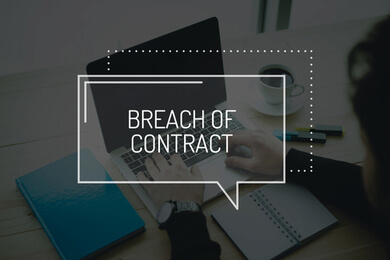
Contractual issues are one of the most common reasons why a company may pursue business litigation. Entering into a legal contract with another party will put protections in place, and both parties will be required to fulfill the terms of their agreement. However, there are many situations where one party may violate a contract’s terms, and they may do so out of negligence, such as by performing substandard work; because of circumstances beyond their control; or in an intentional attempt to cause the other party to suffer financial harm. Different types of contract breaches may be approached differently, and business owners will need to understand how the laws will address these types of breaches during litigation.
Minor Breach Vs. Material Breach
The way a contract dispute will be approached will usually depend on the seriousness of the alleged breach. In a minor breach of contract, a party may partially fulfill some of the contract’s terms while failing to fully meet their obligations. For example, a purchase contract may state that goods will be delivered by a certain date, but the vendor may only be able to deliver 90 percent of what was ordered by that date. In these cases, the parties may be able to reach an agreement on how to resolve these issues, such as by offering a discount on the 10 percent of the goods that were not delivered on time.
What Happens if an Employee Breaches a Florida Non-Disclosure Agreement?
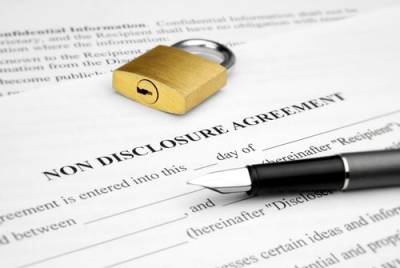 Successful businesses often spend years, if not decades, figuring out the most effective business strategies, establishing vendor and client relationships, and creating profitable products and services. Understandably, businesses want to protect this valuable information from falling into the wrong hands. Non-disclosure agreements, or confidentiality agreements, are an important legal tool for protecting trade secrets, intellectual property, and other proprietary information. Unfortunately, non-disclosure agreement violations can happen, and confidential information may be leaked to other parties.
Successful businesses often spend years, if not decades, figuring out the most effective business strategies, establishing vendor and client relationships, and creating profitable products and services. Understandably, businesses want to protect this valuable information from falling into the wrong hands. Non-disclosure agreements, or confidentiality agreements, are an important legal tool for protecting trade secrets, intellectual property, and other proprietary information. Unfortunately, non-disclosure agreement violations can happen, and confidential information may be leaked to other parties.
Violation of a Florida Non-Disclosure Agreement
Non-disclosure agreements can be valuable legal instruments for businesses that want to protect confidential information. Unfortunately, including a non-disclosure agreement in an employment contract does not always prevent violations of the agreement.
How Will Changing Laws and Policies Affect Non-Compete Agreements?
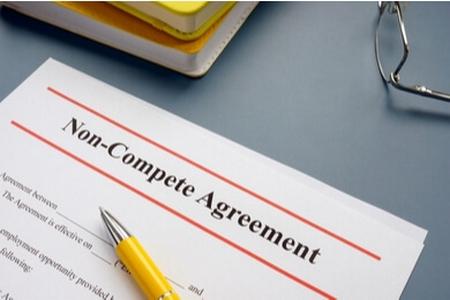
For many employers, non-compete agreements provide essential protections. These agreements ensure that employees who have gained a knowledge and understanding of a company’s business practices and trade secrets cannot use this information to engage in unfair competition by working for a competitor or starting their own competing business. In some cases, a business may need to pursue litigation to enforce non-compete agreements and address violations that have resulted in financial losses or other issues that have affected a company’s ability to operate successfully. However, the ability to do so may change in the future as new laws and regulations are implemented that affect non-compete agreements.
Potential Limitations on Non-Compete Agreements
Some advocates believe that non-compete agreements place unfair restrictions on workers, limiting their ability to change jobs, pursue opportunities, and increase their income. To address this issue, multiple states have passed laws restricting non-compete agreements in certain situations, such as for employees under a certain income level. For employers in Florida, non-compete agreements are generally enforceable as long as their restrictions are reasonable and they are necessary to protect a company’s legitimate business interests.
When Can Business Litigation Address Anti-Competitive Practices?

The free market is based on healthy competition, and businesses can succeed by competing with each other to provide quality goods and services to consumers at the best prices. However, there are many cases where companies may attempt to unfairly influence the market and increase their profits by discouraging or eliminating competition. If a company has suffered harm because of another company’s anti-competitive practices, it may be able to pursue business litigation to address this issue.
Antitrust Lawsuits
Cases that address unfair practices meant to reduce competition are known as antitrust cases, and they may be filed in response to issues such as:
-
Price-fixing - Multiple companies may create agreements to sell products or services at a specific price or within a certain price range. This can be harmful for consumers, since it will usually result in higher prices and restrict people’s ability to seek out the best value. Agreements between competitors to restrict production are also illegal, since they are attempts to unfairly influence the market.
What Methods Can Be Used to Resolve Partnership Disputes?
 There are a variety of reasons that business partners may encounter disputes. Partners may disagree about the direction of the company, or one partner may be unhappy about how another partner has managed their responsibilities. Disputes may also involve allegations that one or more partners have acted inappropriately or illegally, such as by misappropriating a company’s funds for personal use or making decisions meant to benefit one partner at the expense of other partners or the business as a whole. When partnership disputes arise, partners will want to understand the methods that may be available to address these issues, reach agreements when possible, or determine how the end of the partnership will be handled.
There are a variety of reasons that business partners may encounter disputes. Partners may disagree about the direction of the company, or one partner may be unhappy about how another partner has managed their responsibilities. Disputes may also involve allegations that one or more partners have acted inappropriately or illegally, such as by misappropriating a company’s funds for personal use or making decisions meant to benefit one partner at the expense of other partners or the business as a whole. When partnership disputes arise, partners will want to understand the methods that may be available to address these issues, reach agreements when possible, or determine how the end of the partnership will be handled.
Dispute Resolution Methods for Business Partners
If partners want to be able to resolve their differences and continue working together to manage their company, they may be able to work together to reach agreements on how the issues in dispute will be addressed. However, this is not always possible, and partners can often benefit by receiving assistance from outside parties. The methods of resolving disputes in these cases may include:
Non-Compete Vs. Non-Solicitation Agreements: What Is the Difference?
Employment contracts, severance agreements, and other types of contracts will often contain clauses that restrict a person from taking certain actions or engaging in certain activities. These are known as “restrictive covenants,” and they are used to protect the interests of a company, ensure that its trade secrets and proprietary practices will not be disclosed, and prevent unfair competition. Restrictive covenants may include both non-compete and non-solicitation agreements. If a person is accused of violating these agreements, a company may pursue litigation to address the harm suffered due to the violation. By understanding what these agreements cover and when they may be enforced, the parties in these types of disputes can determine their best options for resolving any disputes that may arise.
Differences Between Non-Solicitation and Non-Compete Agreements
Restrictive covenants place limits on the types of business activities that a person can engage in. A company may ask employees to agree to these terms to ensure that a person will not engage in unfair business practices that may cause the company to suffer financial losses.
How Can Landlords and Tenants Address Commercial Lease Disputes?
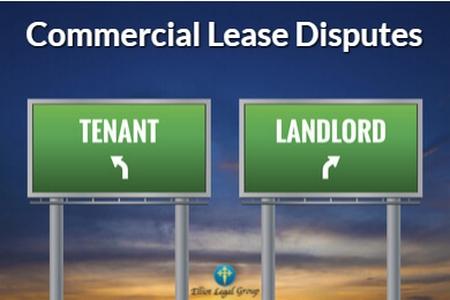 Businesses may encounter multiple types of legal disputes, and in some cases, litigation may be required to address these issues. In some cases, these disputes may be related to a commercial lease. A landlord may need to address concerns about the actions taken by a tenant, or a business that leases space may need to take legal action against a landlord to protect its interests. In these cases, landlords and tenants can work with an attorney who is experienced in real estate litigation to determine how to resolve lease-related disputes.
Businesses may encounter multiple types of legal disputes, and in some cases, litigation may be required to address these issues. In some cases, these disputes may be related to a commercial lease. A landlord may need to address concerns about the actions taken by a tenant, or a business that leases space may need to take legal action against a landlord to protect its interests. In these cases, landlords and tenants can work with an attorney who is experienced in real estate litigation to determine how to resolve lease-related disputes.
Common Commercial Landlord/Tenant Disputes
Landlords and tenants may need to address multiple concerns related to a commercial lease, including:
-
Maintenance and repairs - While the terms of a lease will usually specify who is responsible for paying maintenance costs or performing repairs to a property, disagreements may arise between landlords and tenants regarding what types of maintenance are covered by the lease’s terms, who is responsible for maintenance in common areas of a property, and the extent of repairs that may need to be made to a building’s interior or exterior.
What Issues Can Affect the Enforceability of a Business Contract?
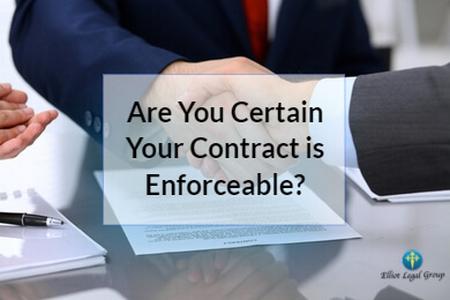 Most businesses rely on different types of contracts to make sure agreements are legally binding. These may include vendor contracts, partnership agreements, employment contracts, and multiple other types of business-related agreements. In cases where one party does not fulfill the terms of a contract, the other party may pursue litigation to enforce the contract’s terms. However, there are some cases where it may not be possible to legally enforce a contract, and business owners will want to understand the potential issues that may make a contract unenforceable.
Most businesses rely on different types of contracts to make sure agreements are legally binding. These may include vendor contracts, partnership agreements, employment contracts, and multiple other types of business-related agreements. In cases where one party does not fulfill the terms of a contract, the other party may pursue litigation to enforce the contract’s terms. However, there are some cases where it may not be possible to legally enforce a contract, and business owners will want to understand the potential issues that may make a contract unenforceable.
Making Sure a Contract Is Enforceable
A contract will need to meet a number of legal requirements, and one party may believe that the contract is invalid because it violates the law or does not include certain terms. Some issues that may affect the enforceability of a contract include:
When Can Real Estate Developers Pursue Construction Defect Litigation?
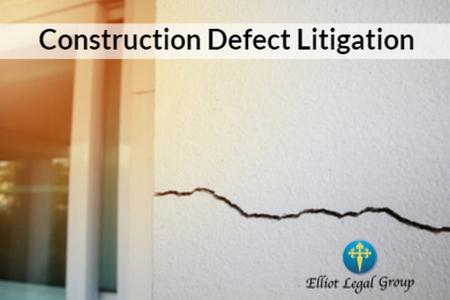 There is a multitude of legal issues that commercial real estate developers will need to address, including financing, permits, and zoning laws. Construction is a major aspect of a commercial real estate development project, and in some cases, developers may encounter construction defects that affect the value of a property and the ability to use it as intended. In these cases, a developer may need to pursue litigation against a construction company, contractor, parts manufacturer, or other parties who were responsible for defects.
There is a multitude of legal issues that commercial real estate developers will need to address, including financing, permits, and zoning laws. Construction is a major aspect of a commercial real estate development project, and in some cases, developers may encounter construction defects that affect the value of a property and the ability to use it as intended. In these cases, a developer may need to pursue litigation against a construction company, contractor, parts manufacturer, or other parties who were responsible for defects.
Reasons for Construction Defect Litigation
Construction defects may involve multiple issues. Defects may be patent, meaning that they are easily observable or can be uncovered through a routine inspection, or they may be latent, meaning that they are not immediately evident. In general, construction defect litigation may address the following types of defects:
When Do Partners Need to Use Litigation During a “Business Divorce”?

In many cases, business partners are able to work together for the benefit of themselves and their company. However, there are a variety of situations where partnership disputes may arise, and in some cases, partners may be unable to resolve these matters and continue working with each other. Disputes that cannot be resolved may lead to a “business divorce” in which partners decide to stop working together. While some partners may be able to reach an agreement on how to dissolve their partnership, others may need to pursue business litigation to protect their rights and interests.
Options in a Business Divorce
The procedures followed during a business divorce will depend on a variety of factors. These may include whether this type of situation was addressed in a partnership agreement, whether one or more partners wish to continue operating the business after a partner leaves the company, and whether a partner believes that one or more other partners have acted improperly or violated the law. Partners will also need to address issues such as liability for business debts and taxes and the methods used to calculate the value of business assets.















